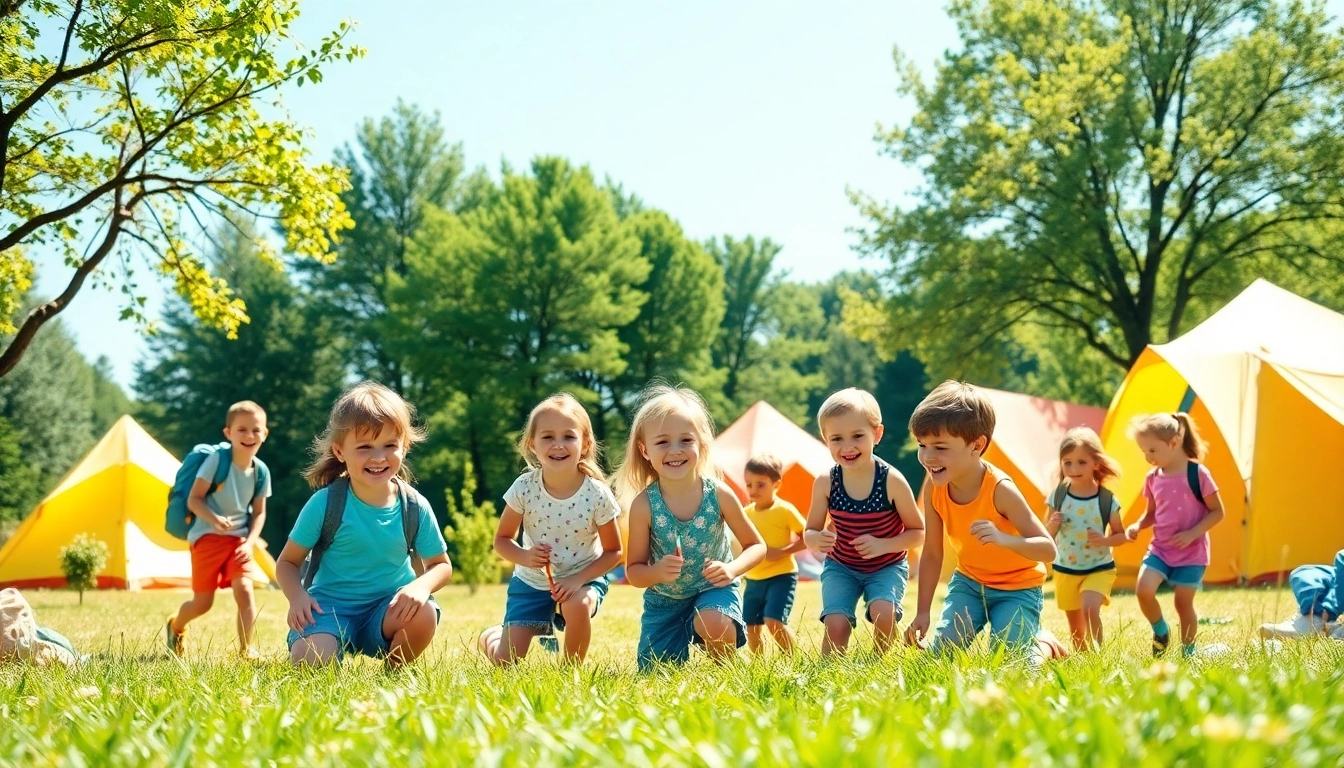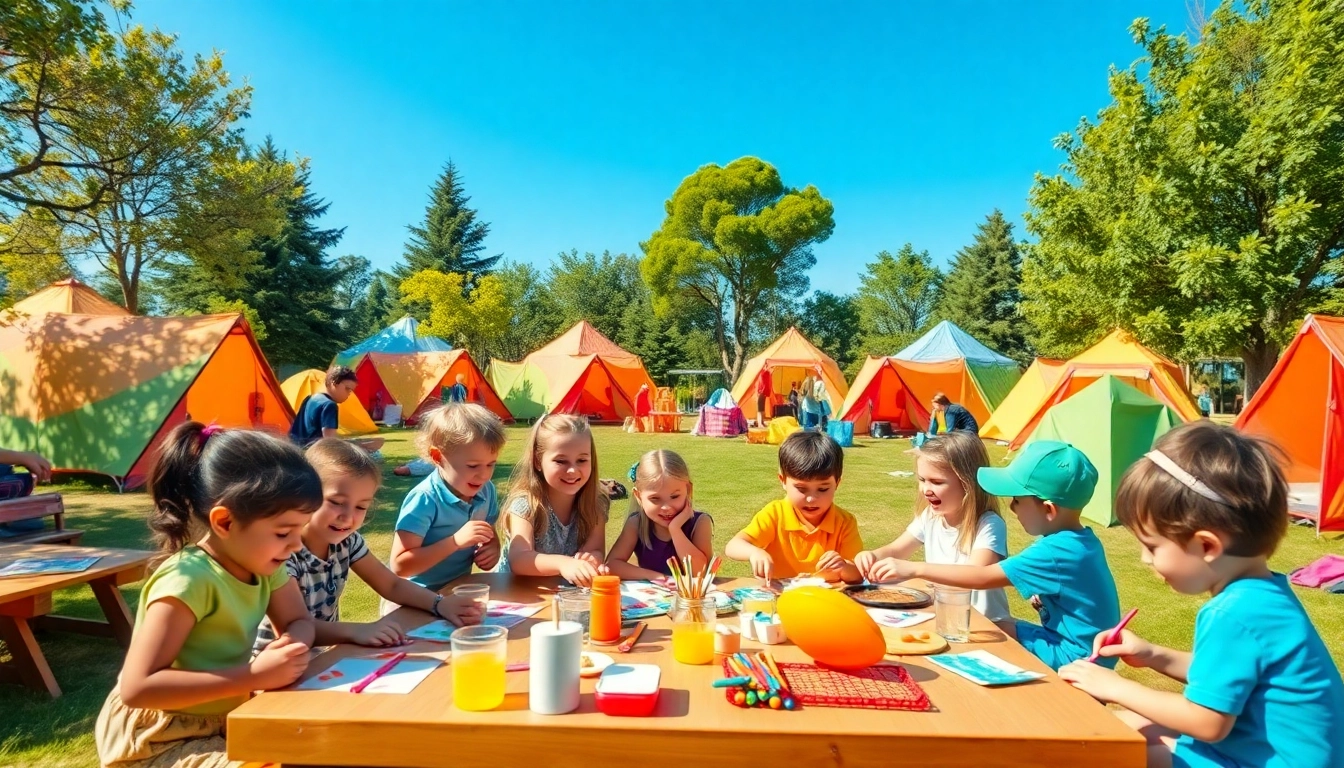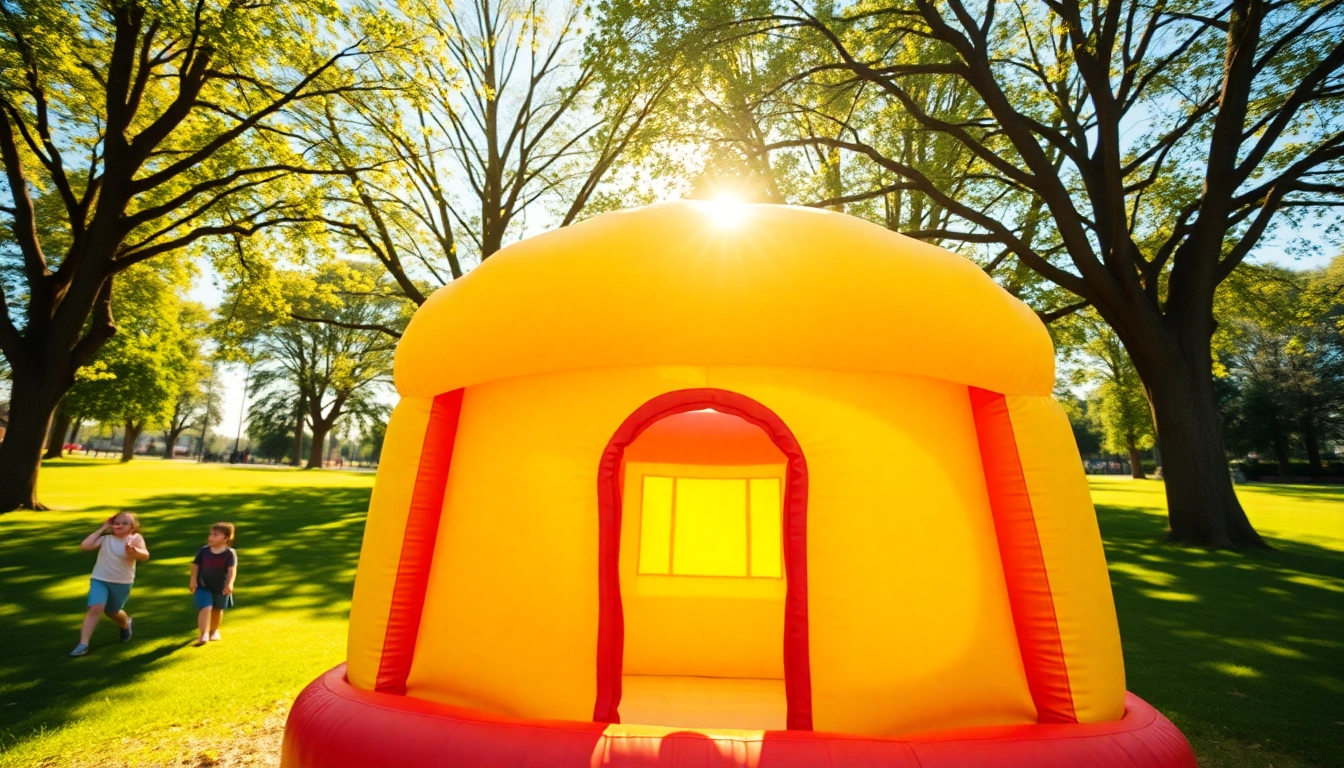Introduction to Holiday Camps
Holiday camps are an enriching opportunity for children and teens to experience adventure, build friendships, and develop various skills while enjoying their time away from school. These camps provide a structured environment where participants engage in a multitude of activities designed to promote learning, personal growth, and socialization. Whether it’s through outdoor adventures, sports, arts and crafts, or educational programs, holiday camps stimulate creativity and ensure that each attendee has a rewarding experience.
What are Holiday Camps?
Holiday camps are specialized programs typically held during school breaks, where children and teenagers participate in organized activities under the supervision of trained staff. These camps can be residential or day-based, lasting from a few days to several weeks, and they often focus on specific themes such as sports, arts, science, or nature. The primary goal is to provide an engaging and often educational break from the conventional school routine, allowing participants to explore new interests, enhance existing skills, and foster independence.
Types of Holiday Camps Available
Holiday camps come in various forms catering to different interests and age groups:
- Sports Camps: These camps focus on physical activities, helping participants improve their skills in different sports such as soccer, basketball, or swimming. Sports camps often include competitions, training sessions, and individual coaching.
- Arts and Crafts Camps: Designed for the creatively inclined, these camps offer various art forms, such as painting, sculpture, music, and drama. Participants can explore their artistic talents through structured classes and workshops.
- Outdoor Adventure Camps: These camps immerse attendees in nature through hiking, camping, canoeing, and team-building exercises. They aim to develop a love for nature while instilling essential outdoor skills.
- Educational Camps: Often held in association with schools or educational institutions, these camps focus on specific subjects, such as science, technology, engineering, and mathematics (STEM), offering hands-on learning experiences.
- Specialty Camps: Specialty camps offer unique experiences focusing on specific skills, such as coding, cooking, or robotics. These camps often cater to niche interests and provide tailored programming.
Who Can Attend Holiday Camps?
Holiday camps are designed for a wide range of participants. Many camps have age-specific programs, often catering to children from kindergarten age up to teens. Some camps may have specialized programs for younger children, while others are tailored to older kids looking to develop specific skills or pursue interests seriously. Furthermore, some camps promote inclusivity and welcome participants with varying abilities, ensuring that all children can benefit from the experiences offered.
Benefits of Attending Holiday Camps
Participating in holiday camps offers an array of benefits that can have lasting positive impacts on children and teenagers. Below are some key advantages:
Social Skills Development
Holiday camps provide a unique social environment where participants interact with peers from diverse backgrounds. These interactions foster meaningful friendships and improve communication skills. Children learn how to work in teams, resolve conflicts, and navigate social situations, laying a foundation for lasting relationships beyond the camp experience.
Physical Activity and Health Benefits
Today’s sedentary lifestyles can hinder children’s physical fitness. Holiday camps address this concern by incorporating various physical activities into their programming. Whether it’s swimming, hiking, or participating in sports, these activities promote physical health while teaching the importance of maintaining an active lifestyle. Additionally, exposure to outdoor settings and organized activities helps children develop coordination, strength, and agility.
Creative Expression Opportunities
Creative expression is fundamental to childhood development. Holiday camps provide a platform for children to express themselves artistically without the pressures often found in a traditional classroom setting. Through art, music, and performance activities, attendees are encouraged to experiment, explore emotions, and develop their unique voices, which are vital aspects of personal development.
Choosing the Right Holiday Camp
With an abundance of options available, selecting the right holiday camp for your child can be overwhelming. It’s essential to consider various factors to ensure the chosen camp aligns with your child’s needs and interests.
Factors to Consider When Selecting a Camp
When evaluating potential holiday camps, keep the following factors in mind:
- Age Appropriateness: Make sure the camp is suitable for your child’s age and maturity level. Camps can have varying age ranges, and selecting the right one will enhance the experience.
- Activity Offerings: Review the camp’s schedule of activities to ensure it includes options that resonate with your child’s interests. Whether they prefer sports, arts, or adventure, ensure their passions are well-represented.
- Location: The proximity of the camp can impact your decision. Consider whether you prefer a day camp close to home or a residential camp that allows your child to explore a different environment.
- Staff Qualifications: Inquire about the staff-to-camper ratio and the training of the camp counselors. The safety and well-being of participants is paramount, and qualified staff can significantly enhance the camp experience.
- Cost: Evaluate the total cost of attendance, considering essential expenses such as registration fees, materials, and any additional costs for trips or activities.
Questions to Ask Camp Organizers
Engaging with camp organizers can provide valuable insight into the camp’s structure and offerings. Here are some important questions to ask:
- What is the camp’s mission and philosophy?
- Can you provide information on the staff’s training and experience?
- What safety measures are in place for participants?
- What is the daily schedule, and how is free time managed?
- How does the camp handle individual needs and potential dietary restrictions?
Camps for Different Interests and Ages
Understanding that each child is unique with specific interests is vital while selecting a holiday camp. While some children may thrive in the dynamic environment of sports camps, others might find their niche in arts or educational camps. It’s essential to consider your child’s personality and preferences, ensuring a delightful and fulfilling experience.
Preparing for Your Holiday Camp Experience
Preparation for camp is crucial for maximizing the experience for both children and parents. Here are some essential steps to take before the camp begins:
Packing Essentials for Camp
Packing can be an exciting part of the holiday camp experience. It’s recommended to create a checklist to ensure your child brings essential items:
- Clothing: Comfortable, weather-appropriate clothing, including swimwear and sturdy shoes.
- Personal Items: Toiletries, sunscreen, and insect repellent.
- Special Gear: Any equipment needed for specific activities, such as sports gear or art supplies.
- Comfort Items: A favorite blanket, pillow, or stuffed animal for comfort during overnight stays.
Setting Expectations for Your Child
Before camp starts, it’s important to communicate with your child about what to expect. Discussing the camp’s structure, activities, potential challenges, and social interactions can help reduce any anxiety or apprehension they may have. Encouraging your child to embrace new experiences will foster a positive attitude toward camp participation.
Safety Tips for Holiday Camps
Safety should be a priority for both children and parents. It’s essential to discuss safety protocols with your child, including:
- Staying with their group and informing counselors if they venture away.
- Understanding emergency procedures and who to approach for help.
- Practicing personal safety, such as using sunscreen and staying hydrated.
Success Stories from Holiday Camps
Testimonials from families and campers highlight the impact holiday camps have on participants. Here are some inspiring success stories that illustrate the benefits of camp:
Testimonials from Previous Attendees
Many children have shared their delight in attending holiday camps, emphasizing how their experiences led to newfound confidence and skills. Campers often recall the supportive environment provided by counselors that allowed them to step out of their comfort zones. Positive feedback not only highlights the welcome friendships formed but also stresses that many campers look forward to returning each year.
Long-Term Friendships Formed at Camp
Often, the bonds forged at holiday camps extend beyond the summer. Lifelong friendships are commonly cultivated through shared experiences, teamwork, and co-participation in activities. Many alumni write about how their camp friends become their support system, even aiding their development well into adulthood.
Skill Development and Achievements
Numerous campers credit their experiences at holiday camps for developing lasting skills and achieving personal goals. Whether mastering a skill in sports, overcoming stage fright in drama, or gaining independence from home, these achievements become foundation stones that shape their future. Many campers leave with newfound talents and the self-assurance to pursue them.










Leave a Reply